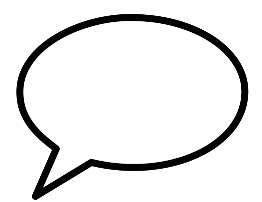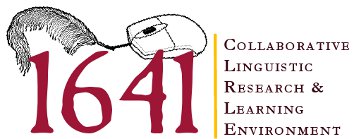Reported Speech?

In grammar, indirect or reported speech (also indirect discourse; Latin ōratiō oblīqua) is a way of reporting a statement or question. A reported question is called an indirect question. Unlike direct speech, indirect speech does not phrase the statement or question the way the original speaker did; instead, certain grammatical categories are changed.[1] In addition, indirect speech is not enclosed in quotation marks.
Person is changed when the person speaking and the person quoting the speech are different. In English, tense is changed. In other languages, mood is altered. Latin switches from indicative to the infinitive (statement) or the subjunctive (question).[2]
- Loos, Eugene E.; Susan Anderson; Dwight H. Day, Jr.; Paul C. Jordan; J. Douglas Wingate. "What is indirect speech?". Glossary of linguistic terms. SIL International. http://www.sil.org/linguistics/GlossaryOflinguisticTerms/WhatIsIndirectSpeech.htm. Retrieved 2010-06-20.
- Allen, Joseph Henry; Greenough, James Bradstreet; D'Ooge, Benjamin Leonard. New Latin Grammar for schools and colleges. Ginn, 1916. page 584, paragraph 580: declaratory sentences in indirect discourse; p. 380, par. 586: questions in indirect discourse.
-- Excerpt taken from Indirect Speech on Wikipedia
The word "saith" or phrase "saith that" could indicate reported speech in the depositions. Users of CLRLE can search for these terms in the Deposition Transcription field of deposition records. This deposition contains instances of these words/phrases, some examples being:
"this Examinant saith that they ware prisoners with mccarty Reaghs mc Carty Reaghs soldiers there, and that McCarty Regh kept his Campe there"
"this Examinant saith he doth not remember that there were aboue foure Englishmen that were carried marched away, with the campe"
The keyword "answereth" or phrase "answereth that" may also indicate reported speech, since the deponent is possibly reported as having answered a question. This deposition contains some these instances of these words/phrases including:
"Whoe being demanded whether the Castle fforbes was beseeged before the Castle of Longford or after, & who were the beseegers he answereth that it was beseeged afterwards And that those that beseeged the said Castle fforbes were Rorie mc Garald ffarrell of Moate (or from thence descended) <A> Morrogh Mc Edmund ffarrell of the Ryne Conogh Mc Rosse ffarrell of the Mote & Lisagh mc Connell ffarrell of Mostrath"
Furthermore, the phrases "being(e) (further) demanded" or "being(e) (further) asked" may be indicators of questions:
"And being demanded whether he knows any more other James mc Garald ffarrell of Coolvore or <B> Kilvore but himself, he answereth that he knoweth none els."


